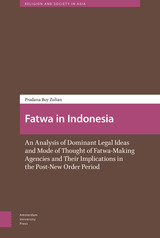4 start with F start with F

This book examines Fanti kinship terminology from a variety of analytic and formal perspectives. Based on work with a broad number of informants, David B. Kronenfeld details and analyzes internal variation in usage within the Fanti community, shows the relationship between terminology and social groups and communicative usage, and relates these findings to major theoretical work on kinship and on the intersections of language, thought, and culture.
The terminological analysis in this study employs a great variety of formal approaches, assesses the strengths and weaknesses of each approach, and covers a wide range of types of usage. This work also performs a systematic, formal analysis of behavior patterns among kin, joining this approach with the analysis of a kinship terminological system. Rather than treating kinship terminology as a special, isolated piece of culture, this study also ties its analysis to more general semantic and cultural theoretical issues. Including computational and comparative studies of kinship terminologies, this volume represents the fullest analysis of any kinship terminological system in the ethnographic record.


Much has been written about the Office of Strategic Services (OSS)--the forerunner of the CIA--and the exploits of its agents during World War II. Virtually unknown, however, is the work of the extraordinary community of scholars who were handpicked by "Wild Bill" Donovan and William L. Langer and recruited for wartime service in the OSS's Research and Analysis Branch (R&A). Known to insiders as the "Chairborne Division," the faculty of R&A was drawn from a dozen social science disciplines and challenged to apply its academic skills in the struggle against fascism. Its mandate: to collect, analyze, and disseminate intelligence about the enemy.
Foreign Intelligence is the first comprehensive history of this extraordinary behind-the-scenes group. The R&A Branch assembled scholars of widely divergent traditions and practices--Americans and recent European émigrés; philosophers, historians, and economists; regionalists and functionalists; Marxists and positivists--all engaged in the heady task of translating the abstractions of academic discourse into practical politics. Drawing on extensive, newly declassified archival sources, Barry M. Katz traces the careers of the key players in R&A, whose assessments helped to shape U.S. policy both during and after the war. He shows how these scholars, who included some of the most influential theorists of our time, laid the foundation of modern intelligence work. Their reports introduced the theories and methods of academic discourse into the workings of government, and when they returned to their universities after the war, their wartime experience forever transformed the world of scholarship.
Authoritative, probing, and wholly original, Foreign Intelligence not only sheds new light on this overlooked aspect of the U.S. intelligence record, it also offers a startling perspective on the history of intellectual thought in the twentieth century.

Although Franz Kline was one of the seminal figures of the American Abstract Expressionist movement, he is less well known than contemporaries such as Jackson Pollock and Willem de Kooning. This is partly because Kline, unlike most artists in his circle, did not like to write or talk about his own art. In fact, when asked in a panel to discuss abstract art, Kline said, “I thought that was the reason for trying to do it, because you couldn’t [talk about it].” Still, his impact was such that the critic and art historian April Kingsley wrote, “Abstract Expressionism as a movement died with him.”
This volume, the newest addition to the Artist’s Materials series from the Getty Conservation Institute, looks closely at both Kline's life and work, from his early years in Pennsylvania to his later success in New York City. Kline's iconic paintings are poised on a critical cusp: some have already undergone conservation, but others remain unaltered and retain the artist’s color, gloss, and texture, and they are surprisingly vulnerable. The authors’ presentation of rigorous examination and scientific analysis of more than thirty of Kline’s paintings from the 1930s through the 1960s provides invaluable insight into his life, materials, and techniques. This study provides conservators with essential information that will shape future strategies for the care of Kline’s paintings, and offers readers a more thorough comprehension of this underappreciated artist who is so central to American Abstract Expressionism.
READERS
Browse our collection.
PUBLISHERS
See BiblioVault's publisher services.
STUDENT SERVICES
Files for college accessibility offices.
UChicago Accessibility Resources
home | accessibility | search | about | contact us
BiblioVault ® 2001 - 2024
The University of Chicago Press









